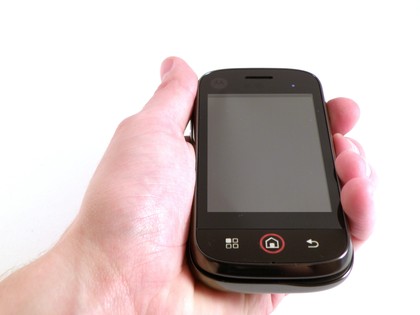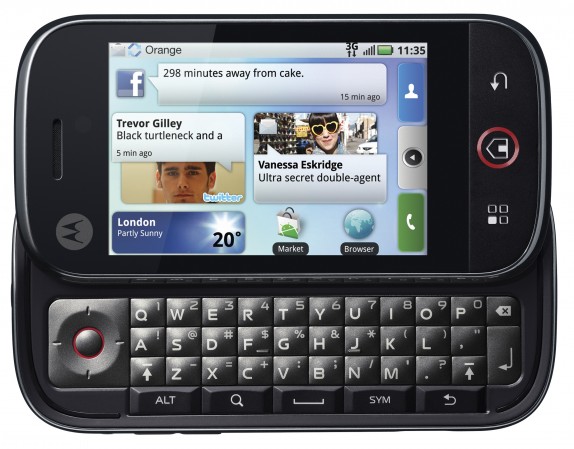Why you can trust TechRadar

Motorola is certainly back – the Dext is a phone with a lot to talk about. Moto's had a good hard think about a lot of new ideas for the phone, and the MotoBlur platform shows it's serious about configuring the software side of things as much as hardware.
There's a lot riding on the Dext for Motorola, so has it actually put the right bits in the correct places?
We liked:
Nobody likes to see a company slide out of existence, so we're happy to report that the Dext is a decent handset with some nice features.
MotoBlur is, overall, a good thing for Android, building well on the new trend for social networking integration on mobile phones.
Messaging your friends through the huge variety of mediums is a great thing to be able to do, and we're pleased Motorola is offering something that no other manufacturer is doing right now by integrating all the platforms so tightly.
The touchscreen is great, with swiping through the multiple updates easy to do and most applications easy to find and use without any prompting. We also really enjoyed using the QWERTY and virtual keyboards, with both offering us something cool and useful.
Sign up for breaking news, reviews, opinion, top tech deals, and more.
The Dext is probably the best media handset running Android on the market at the moment – we liked the video layout and native editing support especially, and we're going to be photographing everything in Solarise from now on.
We disliked:
The build quality of the phone is inevitably going to come in for criticism, as it's not up to the usual Motorola standards. The phone itself is huge compared to its peers, and it's obvious a number of people are going to be instantly put off by its size.
The placement of the power/lock keys isn't the most intuitive either – the amount of times we pressed the wrong key was annoying.
Not being able to download anything off Android Market was a real problem too – we hope the problem simply melts away on launch day, as it currently scuppers a huge part of the phone's appeal.
The camera certainly isn't the best on the market – we'd have preferred a flash or a better lens over more megapixels.
The lag when running multiple applications is disappointing too, especially as it's unlikely Motorola will be able to do anything about it – it's certainly not as bad as other phones on the market, but when it happens it's very noticeable.
Verdict:
We swayed backwards and forwards over the Dext – MotoBlur is an odd proposition due to the amount of information it displays, but over time we came to like it.
The shape is obviously going to put a lot of people off buying the Dext, but we think the QWERTY keypad will similarly win over a few who might be bored of touchscreen keyboards.
There are a few bugs in the system of the phone we tested – we hope Motorola acts quickly to iron them out, as it seems that many (like the Market problem) are fixable with a swift settings tweak.
It's free on a £35 a month, two year deal – that's a little pricey for a phone that will appeal to teenagers and young adults. We're still waiting for a SIM-free price, but we believe it will land somewhere around the £500 mark, which is a lot for a chunky Android handset, despite the cool bells and whistles.
We have to label the Motorola Dext in the same way we looked at the HTC Hero – MotoBlur is a good platform, but it needs a better phone underneath it before it's a true player. Like the G1 was for Android, the Dext is a marker for what Motorola can achieve, but the Dext isn't going to be the pinnacle if Motorola is to have its hoped-for renaissance.
Current page: Motorola Dext: Verdict
Prev Page Motorola Dext: Official photography
Gareth has been part of the consumer technology world in a career spanning three decades. He started life as a staff writer on the fledgling TechRadar, and has grew with the site (primarily as phones, tablets and wearables editor) until becoming Global Editor in Chief in 2018. Gareth has written over 4,000 articles for TechRadar, has contributed expert insight to a number of other publications, chaired panels on zeitgeist technologies, presented at the Gadget Show Live as well as representing the brand on TV and radio for multiple channels including Sky, BBC, ITV and Al-Jazeera. Passionate about fitness, he can bore anyone rigid about stress management, sleep tracking, heart rate variance as well as bemoaning something about the latest iPhone, Galaxy or OLED TV.
